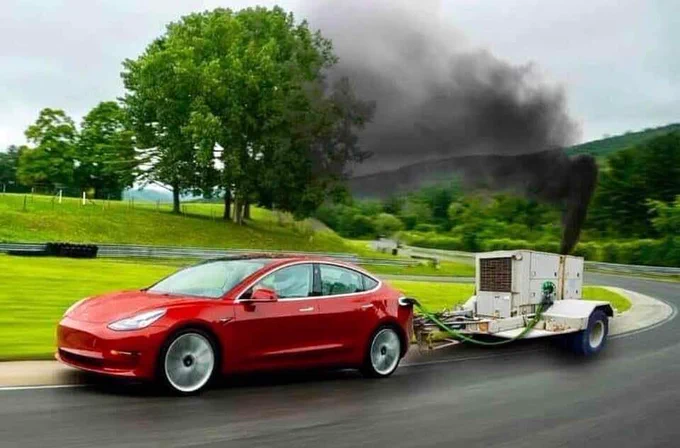I'm driving a PHEV, and we rarely take it out of the tri-county area because it doesn't have much space. I have never paid to use a commercial charger. It's charged in my garage, or at a free level 2 charger.
Of course you've never paid for a commercial charger with a PHEV. You've paid to fill up the gas tank instead

But going back to the article, it makes a lot of assumptions that are not necessarily realistic.
For example, an assumption is that a household is a one-vehicle household. So you have to make a choice between your trips being 100% BEV or 100% ICEV.
But I think a fair number of early adopters might be multi-vehicle households. Let's say post-pandemic, Dad works from home 3 days a week and goes to the office 2 days a week. Mom is a realtor and works from home when she's not showing houses. They have 2 kids who have to go back and forth to school. They own a Bolt BEV and an Suburban ICEV.
Well in that family, they can use the BEV a **TON** for their daily driving tasks, and then when they want to go on a vacation, they load up the Suburban and don't worry about charging because they can stop for gas. And if Mom has a schedule showing properties where she might be expected to rack up 300 miles in a single day, maybe she takes the Suburban instead of the Bolt, and Dad drives the Bolt to take the kids to/from school.
In those situations, it might be absolutely normal to NEVER use a commercial charger, or at the very least it's 1-2% of charging requirement, not 25%.
It's why I advise if someone is looking at a BEV to honestly look at their driving habits, their home charging capability, and how often they have an "exception" to their driving habits. If you're a salesman in Winnipeg who has to drive to make sales calls commonly with 250 mile days (even in the frigid winter), you probably aren't a BEV candidate. If you're a corporate accountant living in Irvine CA who nominally drives 10 mi to and from the office every day and MAYBE on the weekend you drive up to LA, you're golden. (Not that anyone in OC likes to go to LA for any reason lol...) If you're like me, and you primarily WFH while your wife drives to an office ~30 miles r/t every day, and you're a 3-vehicle family so you have options for ICEV for road trips, it makes PERFECT sense to have one BEV (which is why I'm looking at it when we replace one of our current vehicles, but that's 4-5 years out as they're paid off and the mileages are still low). We all have different situations.
It goes back to that group essentially putting out BEV hit pieces, but I'm digging more into the assumptions that underpin those hit pieces.

























![Craft A Brew - Safale S-04 Dry Yeast - Fermentis - English Ale Dry Yeast - For English and American Ales and Hard Apple Ciders - Ingredients for Home Brewing - Beer Making Supplies - [1 Pack]](https://m.media-amazon.com/images/I/41fVGNh6JfL._SL500_.jpg)


































